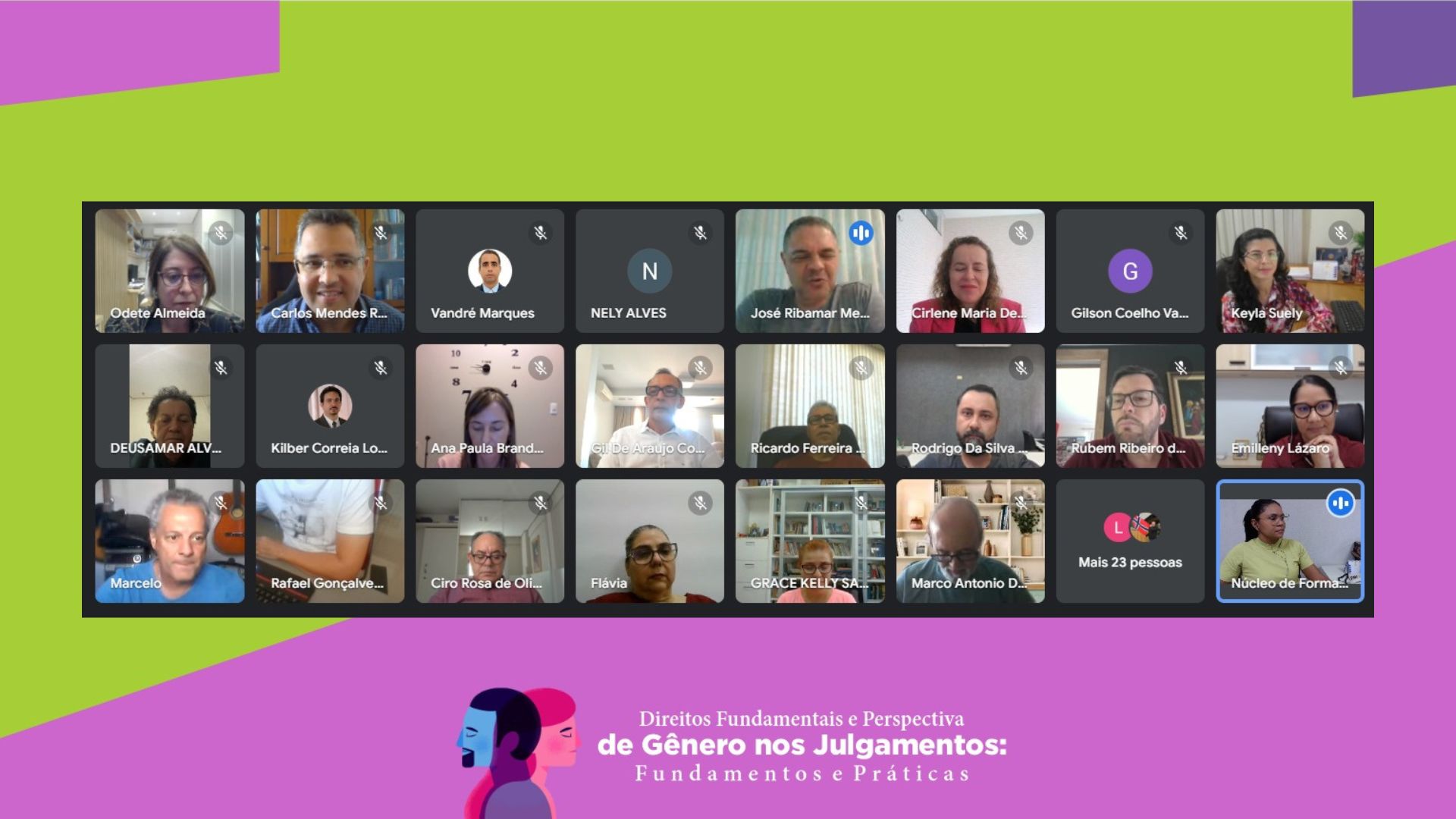
On Thursday (June 20th), fifty-five magistrates took part in the first web class of the course on "Fundamental Rights and Gender Perspective in Judgments: Fundamentals and Practices". Professor Carlos Mendes Rosa, who led the initial reflections on the concept of gender, the social and affective dimensions of gender violence, with an emphasis on violence against women, evaluated the class as very productive.
"We had significant participation from the magistrates and a lot of interaction during the module. I think that, in a way, this has sensitized the actors in the justice system to think differently about the gender issue and issues related to violence against women," he said.
During the class, Carlos, who is also a Professor in the Postgraduate Program in Judicial Provision and Human Rights (UFT/ESMAT), worked with the magistrates on a set of possibilities for facing these issues, considering the complexity of the problem faced today.
In a statement, Judge Odete Batista Dias Almeida stressed the importance of the training in contributing important reflections to and in the exercise of her work. "The course provides important reflections on the issue and how it affects the gender perspective that we must observe in our judgments. Society is constantly changing and keeping up with the nuances of this evolution is the duty of the magistrate, always seeking to provide the fairest possible judicial service," she said.
The course on "Fundamental Rights and Gender Perspective in Judgments: Fundamentals and Practices" continues until July 3rd, with two more web classes, taught by Professors Emilleny Lázaro da Silva Souza and Eduardo Cambi, who will address other approaches from a gender perspective in judgments.
Developed by the Superior School of the Judges of the State of Tocantins (Esmat), the training aims to prepare the magistrates of the Judiciary of the State of Tocantins to act in courts with jurisdiction to apply the Law No. 11.340 of 2006, as well as to deepen into the guidelines of the Gender Perspective Judgment, with a view to achieve effective judicial provision in safeguarding fundamental rights.




